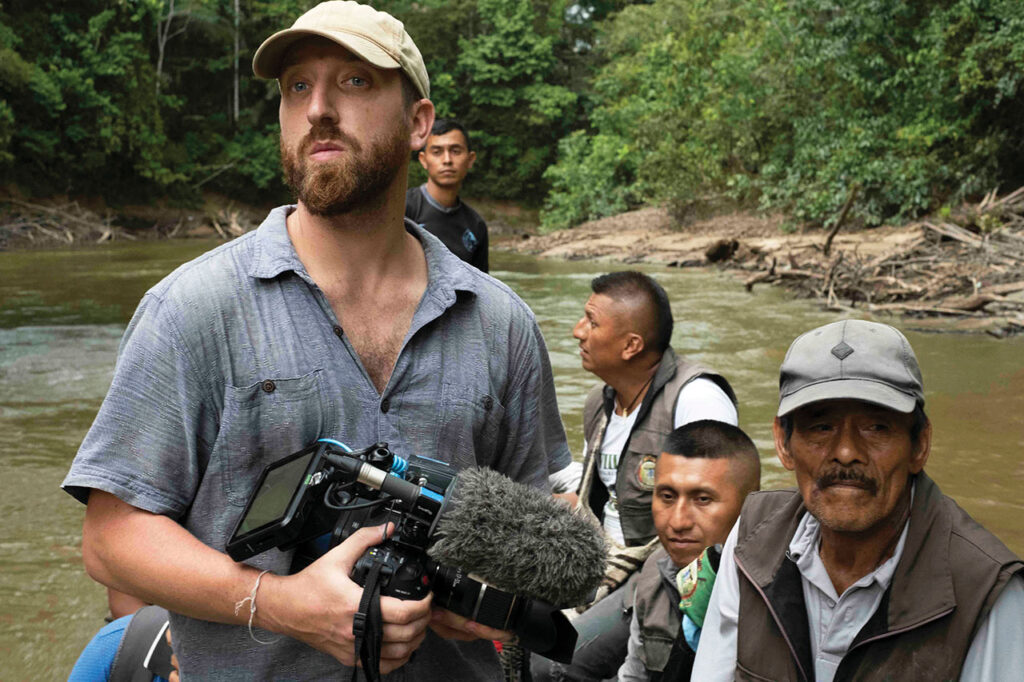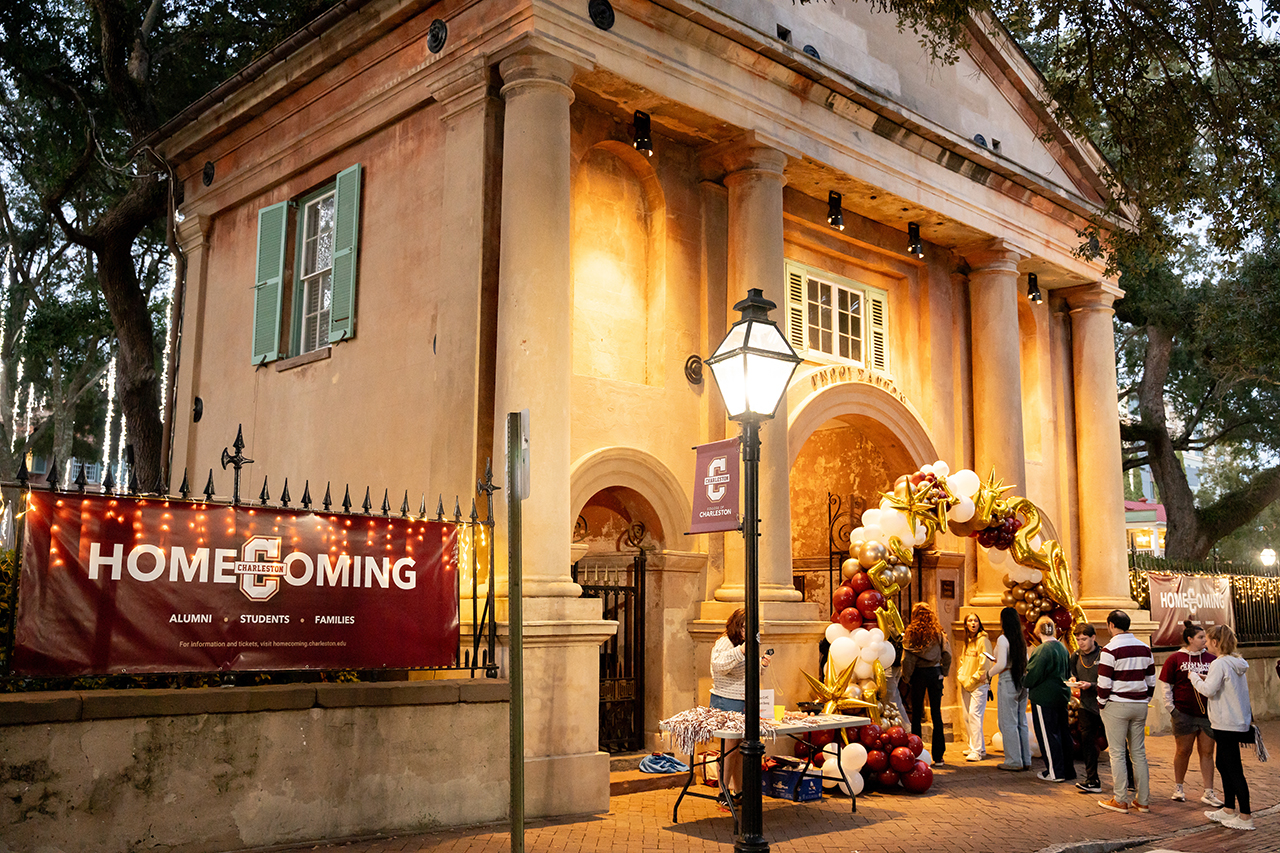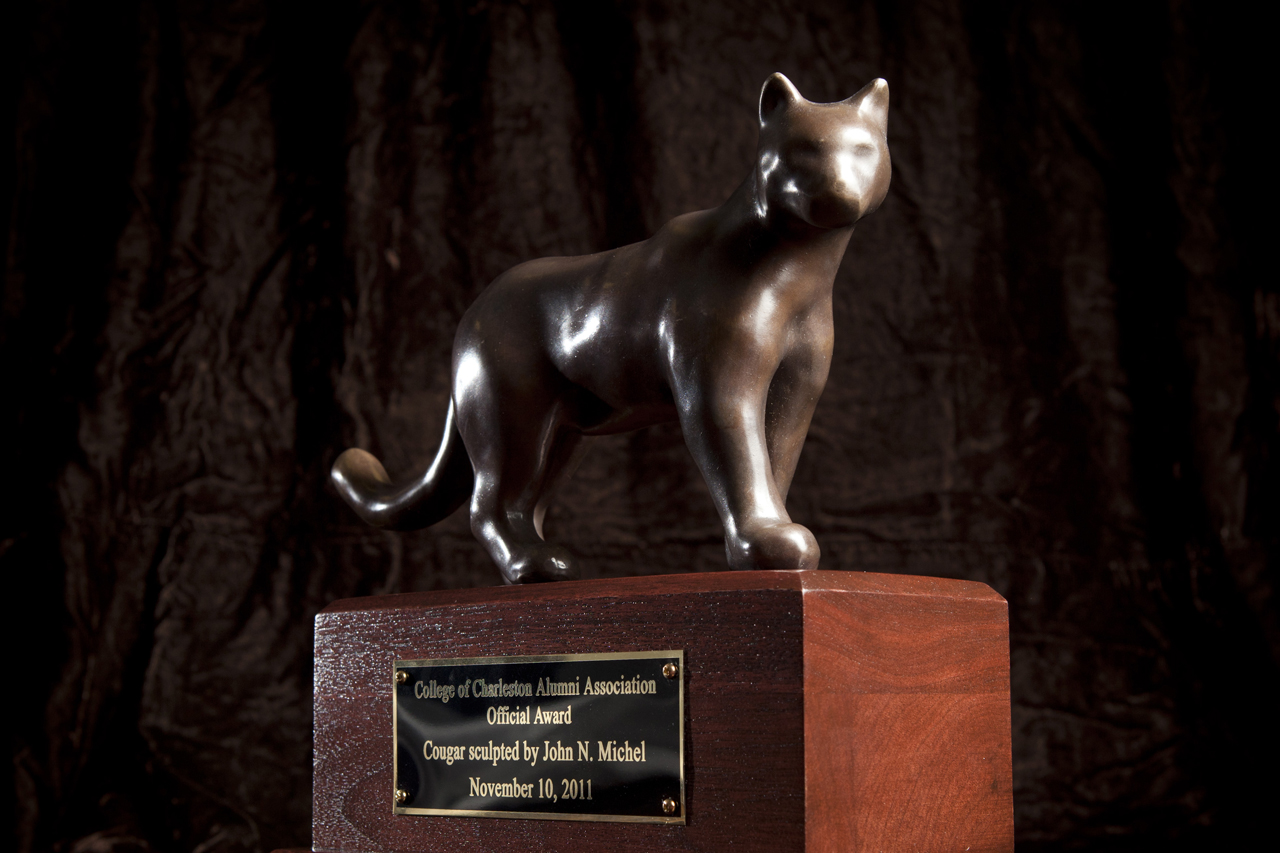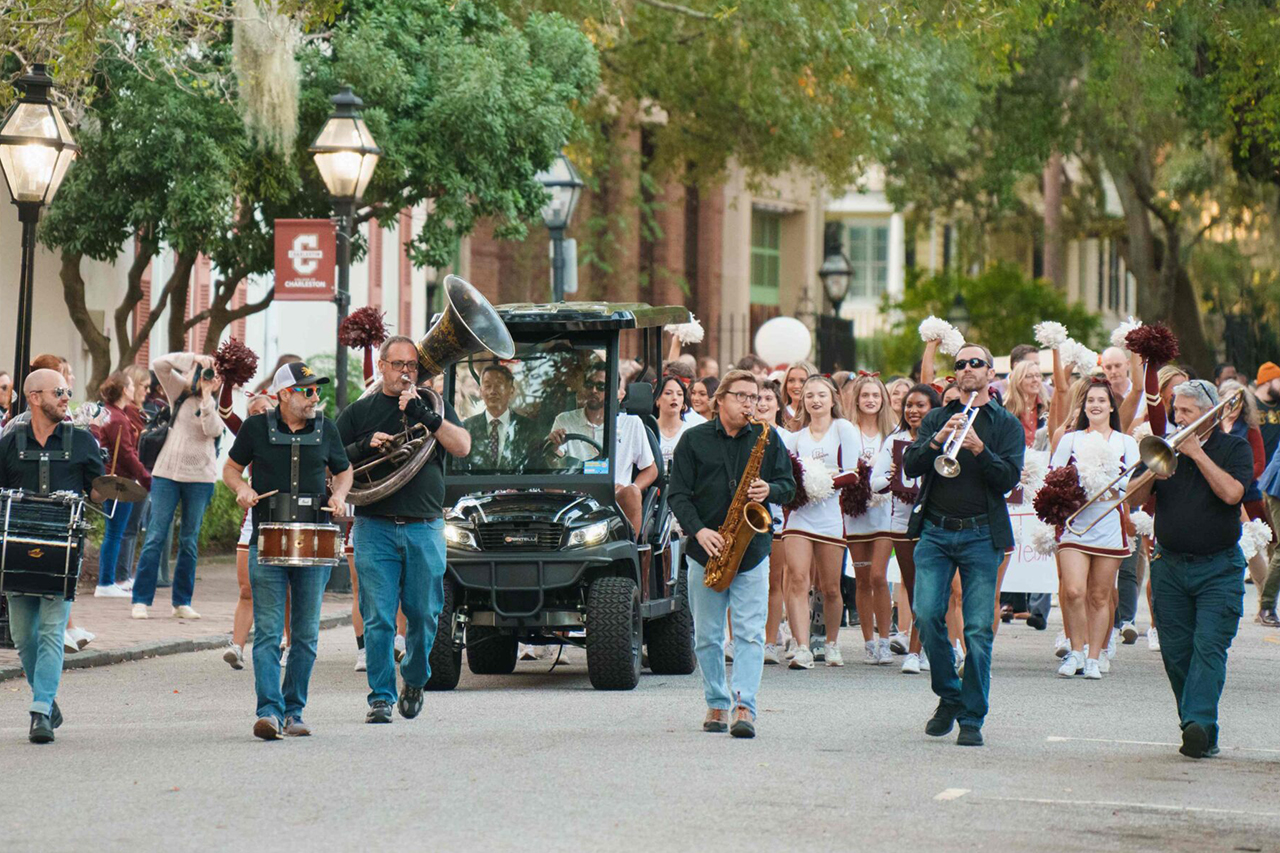Alumnus Creates Moving Images on Human Rights
Documentarian Tom Laffay ’11 shines a light on Latin American citizens suffering environmental and human rights abuses.

Many alumni can trace the beginning of their career journeys to their formative years at the College. For Tom Laffay ’11, that turning point occurred while studying abroad in Cuba in the spring of 2009. The curriculum was heavily focused on social movements across the region, and it inspired him to dig deep into those themes.
That summer, he went to North Carolina where his sister was managing a farm owned by an old-school tobacco-turned-organic-vegetable farmer named Charles Church.
“Working alongside the Mexican migrant farmworkers, I saw the struggles they faced as migrant laborers in a system that both relied on them and at the same time denied them their rights to full citizenship,” he says. “One day Charles said to me, in his classic Appalachian drawl, ‘Someone ought to tell these boys’ story.’”
Cue the proverbial lightbulb.
“His words really gave life to the seeds planted along my path,” says Laffay, “and I decided to pursue visual storytelling to understand the connections between the U.S. and Latin America – what drives people to migrate, to organize, to create and resolve conflict – and understand the drivers of the issues of our times.”
As the migration crisis only gets worse, the need for storytellers like Laffay has never been greater. Today, he is an award-winning photojournalist and documentary filmmaker whose work on human rights issues in Latin America has been featured in The New Yorker, The Atlantic, Time, VICE and National Geographic and has been screened at U.S. Congress and U.N. forums, says Laffay. He has lived and worked in Central America and Colombia since 2011 and is currently producing his first feature-length documentary in collaboration with the Indigenous Siona people in the Colombian Amazon.
Laffay started pursuing documentary filmmaking at the College the fall after his summer on the farm. A double major in political science and Latin American studies with a minor in Spanish, he had the opportunity to learn from Virginia Friedman, who ran the former Center for the Documentary at CofC. Laffay moved to Central America after graduating, and today, his investigative documentaries – such as Nos Están Matando (They’re Killing Us) and Chasing the Mercury – take viewers into isolated communities in Colombia, Guyana and Suriname, which are struggling with human and environmental rights issues.
“Most people just want their story, their experience, heard,” he says. “Many populations and places have been so unfairly or underrepresented historically or by the news cycle that I find there is a willingness to let documentary filmmakers in to share a more nuanced, deeper understanding of the issues they face.
“Multinational interests like oil companies pay off governments, and illegal armed groups tax and promote illegal mining, deforestation, cattle raising and coca production in many countries, particularly in the Amazon,” he adds. “The situation is dire.”
Despite the tragedies he has documented in the last decade, Laffay remains hopeful. “I do feel a groundswell of support and interest in protecting the Amazon and the traditional communities inhabiting these areas,” he says. “Documentary films have and will continue to play a role in educating the public and specific audiences who have the power to influence change. So I plan to continue telling stories I believe in to better raise communities’ voices and create little windows into the realities in these overlooked struggles.”



